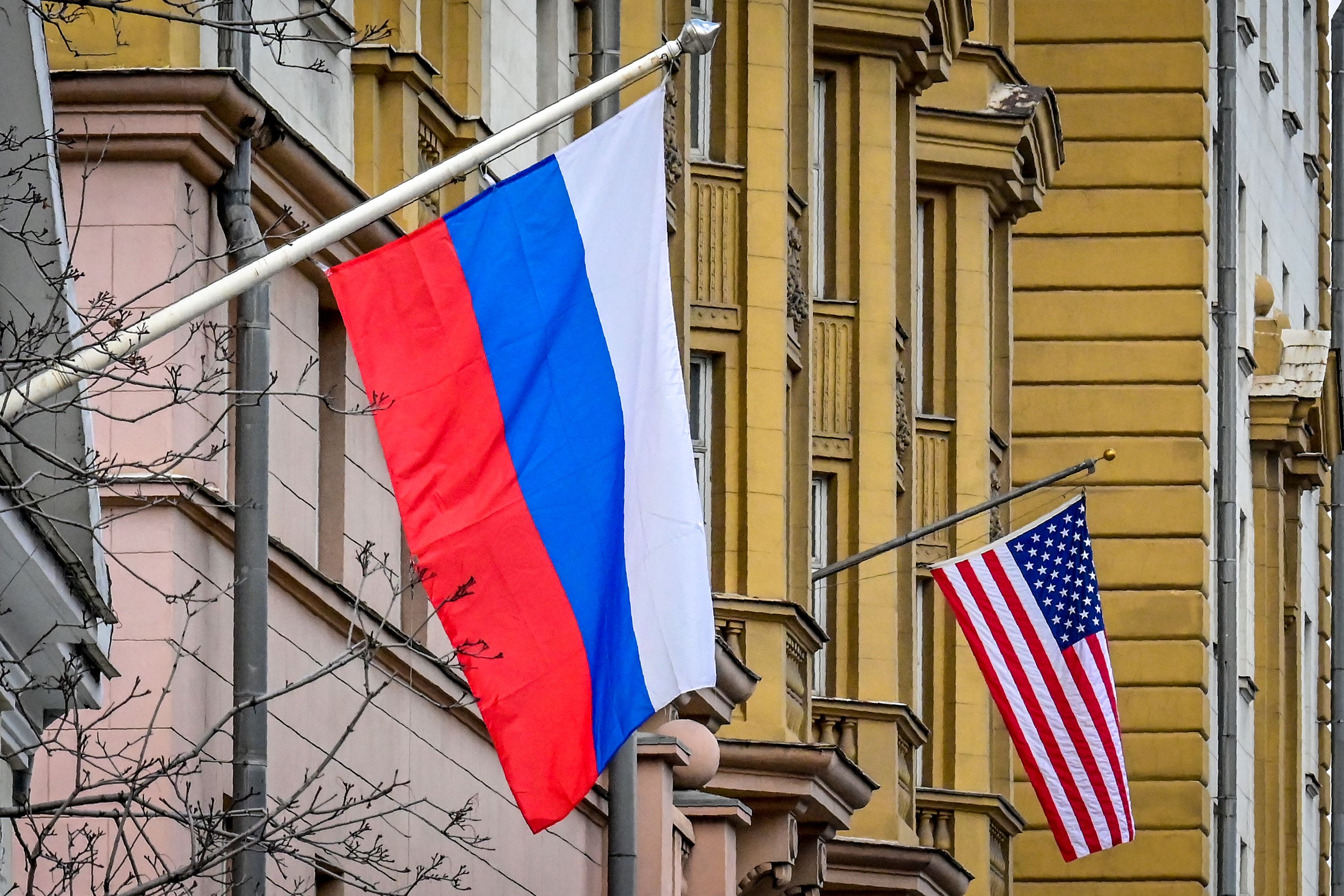US sanctions Russia over cyber attacks, Moscow calls actions 'hostile steps'
Sign up now: Get ST's newsletters delivered to your inbox

The US said the move was in retaliation for the Kremlin's US election interference, a massive cyber attack and other hostile activity.
PHOTO: AFP
WASHINGTON/MOSCOW (REUTERS) - The United States on Thursday (April 15) imposed a broad array of sanctions on Russia, including curbs to its sovereign debt market, to punish it for interfering in last year's US election, cyber hacking, bullying Ukraine and other alleged "malign" actions.
The US government blacklisted Russian companies, expelled Russian diplomats and barred US banks from buying sovereign bonds from Russia's central bank, national wealth fund and finance ministry. Washington also warned the Kremlin that more penalties were possible though the United States said it did not want to escalate.
Moscow reacted angrily, saying this dangerously raised the temperature between the two countries and called into question a possible summit between the US and Russian leaders. It also summoned the US ambassador for a diplomatic dressing-down.
Russia denies meddling in US elections, orchestrating a cyber hack that used US tech company SolarWinds to penetrate US government networks and using a nerve agent to poison Kremlin critic Alexei Navalny.
US President Joe Biden on Tuesday spoke to Russian President Vladimir Putin to raise concerns about these issues and the build-up of Russian forces in Crimea and along the border with Ukraine, even as he proposed a summit.
Biden is trying to strike a balance between deterring what Washington sees as hostile Russian behaviour while avoiding a deeper deterioration in US-Russian ties and preserving some room for cooperation.
Among his moves, Biden signed an executive order authorising the US government to sanction any area of the Russian economy and used it to restrict Russia's ability to issue sovereign debt to punish Moscow for interfering in the 2020 US election.
Biden barred US financial institutions from taking part in the primary market for rouble-denominated Russian sovereign bonds from June 14. US banks have been barred from taking part in the primary market for non-rouble sovereign bonds since 2019.
He did not, however, prohibit them from buying such debt in the secondary market, a step likely to have a far more dramatic effect on the Russian bond and currency markets, which fell as news of the sanctions seeped out before recovering some losses.
"The United States desires a relationship with Russia that is stable and predictable. We do not think that we need to continue on a negative trajectory," the White House said in a statement.
"However, we have also been clear - publicly and privately - that we will defend our national interests and impose costs for Russian Government actions that seek to harm us," it added.
The US Treasury also blacklisted 32 entities and individuals which it said had carried out Russian government-directed attempts to influence the 2020 US presidential election and other "acts of disinformation and interference."
In concert with the European Union, Britain, Australia and Canada, the Treasury also sanctioned eight individuals associated with Russia's ongoing occupation and repression in Crimea, which Russia annexed from Ukraine in 2014.
Russia says US actions are 'hostile steps'
"We have repeatedly warned the United States about the consequences of their hostile steps which dangerously raise the temperature of confrontation between our two countries," Russian Foreign Ministry spokeswoman Maria Zakharova told reporters.
She said that although Biden had spoken to Putin about his interest in normalising relations, his administration's actions testified to the opposite.
The ministry had summoned the US ambassador, she said, adding: "It's not going to be a pleasant meeting for him."
The White House said it was expelling 10 Russian diplomats in Washington DC, including representatives of the Russian intelligence services and for the first time, formally named the Russian Foreign Intelligence Service (SVR) as the perpetrator of the SolarWinds hack.
The agency said the allegations were "nonsense" and "windbaggery."
The US government plans a new executive order to strengthen its cybersecurity, a US official told reporters, suggesting it could include such elements as encryption and multifactor authentication.
The White House also said it would respond to reports Russia had offered bounties to Taleban-linked militants to kill US soldiers in Afghanistan. However, it said it would not make its response public to protect US forces, saying the matter would be handled "through diplomatic, military and intelligence channels."
A senior US official said Washington had "low to moderate" confidence in its assessment of these reports, in part because they rely on sometimes undependable testimony from detainees.
Russia has long brushed off allegations of putting bounties on US soldiers in Afghanistan.
Biden's national security adviser, Jake Sullivan, described the sanctions as "proportionate measures to defend American interests in response to harmful Russian actions."
"His (Biden's) goal is to provide a significant and credible response but not to escalate the situation," Sullivan told CNN.
The actions initially sent the Russian rouble down more than 2 per cent against the dollar and to a more than five-month low against the euro before clawing back some losses.


